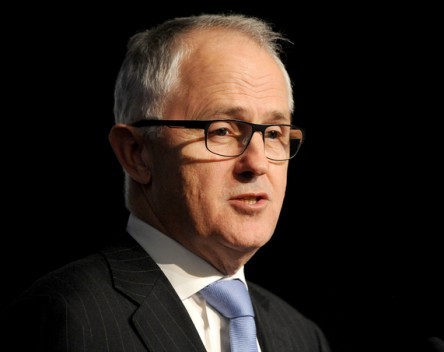
The world is the entrepreneur’s oyster – China, Israel, USA, Ireland and the UK are all going gangbusters in supporting startups and in their own ways saying ‘pick me’.
We are seeing an increasing number of delegations, tours and missions to those countries to understand innovation and startups in places like Israel, which is leading the world on innovation and growth.
Australia is playing catch-up and this is precisely the reason we have to have the right incentives in place to attract the best and the brightest.
The federal government’s recent innovation statement established launch pads in the USA, China and Israel for Australian entrepreneurs to have as an initial base when hustling internationally. That’s such a great step to giving people access to global markets and hopefully short circuit the time to connect to the local ecosystem.
Even within Australia the wowing of startups is on – last year the Victorian and Queensland governments announced substantial packages for investment in startups, while NSW limped along with its Innovate NSW contribution of under $10million for business to business tech innovation.
These state initiatives provide opportunity to collaborate across sectors and recalibrate the many resources available across government agencies to startups.
But is it a bad thing when governments invest in startups?
Coming from government and ministerial worlds I have seen the waste and diabolical uses of hundreds of millions of dollars of taxpayers’ money, so I know that funds can be better recalibrated to support this sector.
Since becoming an entrepreneur I have financed myself in the past 10 months to start and establish my brand and business.
While I didn’t get any government subsidies or incentive in doing so, I did have the savings – most people don’t have that kind of money they can dip in to and some may not be in a position to borrow from traditional sources.
So, I feel it appropriate that government can provide some support.
Earlier this week, Paul Colgan, publisher and editor in chief of Business Insider, wrote a frank article titled “The startup industry’s new year resolution should be to stop asking for taxpayers’ money”.
Colgan asks, ‘did Facebook, Apple or Microsoft founders or even our very own Atlassian founders get government support?’
No, they didn’t – and I also get that there is an element of entrepreneurism in taking the risk, believing in something so much you work around the clock, investing your own savings, and being lean and hungry.
But this is 2016 and the world is competing for the best and brightest minds, so if we want to attract and retain the best then we have to work it.
I agree that tax incentives and concessions are better than ‘handouts’ – the most precious commodity at the moment is our talent and that if we are to encourage entrepreneurism we need to work hard to attract and keep people here.
Colgan points out that the Prime Minister’s visit to the US this week to sell Australia will have its challenges – the Australian dollar is weak, we are far away and are on a different timeline to the major global markets we need to appeal to.
Without a doubt loans, tax incentives and concessions are the way to go.
However, Australia’s governments have delivered concessions to the private sector before – most recently the NSW government compensation package to the taxi industry. I also recall the global bail-out of the banks after the GFC.
Did the beneficiaries stop giving themselves multimillion dollar bonuses as a show of restraint, having been bailed out with Australian taxpayer guarantee to the tune of $120 billion?
I find myself largely agreeing with Colgan’s view but perhaps with a more flexible position.
Colgan quotes the Startup Muster 2015 survey where 34% of startups wanted government to provide loans and grants, and 25% wanted incentives for founders and investors.
I believe that a HECS-style loan would be well received, as would peppercorn rent for not for profit co-working spaces in one of the many empty and disused government buildings, or government guarantee of rents.
Before you gasp at the thought, understand this – government subsidises the rent of NGOs in the CBD – whether they are small or larger making profit, so the idea isn’t new.
It just needs to be recalibrated towards NFP startup co-working spaces which subsidise the rental for their members, where the government will gain being a part of the growing ecosystem.
For far too long we have separated the paradigms of business, government and community.
The government naturally has a stake in creating the right conditions for the startup and entrepreneurial ecosystem to thrive – no more and no less than it sought to help out banks or taxis.
We are moving into an era of collaborative alchemy – a time where cross-sector collaboration is integral to success.
Government is there to provide the right conditions for communities to thrive – it needs business and startups to generate jobs and revenue in order to shift from the mining boom to the next boom.
Our economic future depends on it.
Anne-Marie Elias is a speaker and consultant in innovation and disruption for social change. She is an honorary Associate of the Centre for Local Government at UTS. You can follow her on Twitter.


COMMENTS
SmartCompany is committed to hosting lively discussions. Help us keep the conversation useful, interesting and welcoming. We aim to publish comments quickly in the interest of promoting robust conversation, but we’re a small team and we deploy filters to protect against legal risk. Occasionally your comment may be held up while it is being reviewed, but we’re working as fast as we can to keep the conversation rolling.
The SmartCompany comment section is members-only content. Please subscribe to leave a comment.
The SmartCompany comment section is members-only content. Please login to leave a comment.